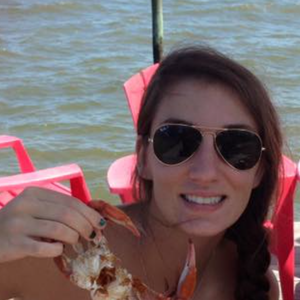When we think of the hidden dangers in our food industry, we typically think of the antibiotics in chicken, the dyes in our foods, and the ample amounts of GMO that circulate in our daily diets. However, there are even more fishy food problems in our seafood.
Pollution and other chemical contaminants circulate in our waters, invade our marine friends, and then land on our plates, and it’s not okay.
From our plastic grocery bags to even the awesomely effective (but micro bead-filled) face wash we use at night, they all manage to make their ways to our water systems. Unfortunately, for our fishy friends like Nemo, he unsuspectingly eats your exfoliating face wash mistaking it for a yummy treat.
Not only do these hidden dangers hurt our marine life, but the chemicals within some of these plastics are detrimental to our health when we eat them.
I interviewed Morgan Knowles, M.S. Marine Biology, about the ever pressing issue of contaminants in our marine life that can invade our bodies when we eat contaminated seafood.
She referred me to her capstone research. Morgan explained to me that a major problem to the issue of contamination of seafood and pollution is plastic.
As we all know, but sometimes forget, all plastic is virtually invincible. So, the majority of the to-go silverware, plastic water bottles, and cigarette filters (yes, they are made from thin threads of plastic) manage to make their way to our marine life and are in some way consumed by them, she explained.
And because plastic is basically indestructible, it is not broken down during the digestive processes of our fish (or us, for that matter). Not only is it terrifying to know that you could have plastic floating around in your gut, but the nasty chemicals and bacteria that can be found in these plastics are down-right scary.
Based upon Morgan’s research, chemicals that have been found in our marine life as a result of contamination include (but are not limited to) flame retardants, formaldehyde, mercury, and pesticide dichlorodiphenyltrichloroethane (yup, that last one is the really scary insecticide DDT).
And the research about the consequences of consuming this plastic filled fish isn’t pretty. “[Contamination risks] can be closely linked with human health and safety. BPA exposure and toxicity is mostly related to its hormones mimicking abilities (e.g. estrogen) in humans.”
It horrified me to learn from her research that when we eat contaminated seafood it can additionally be linked to obesity, reducing our immune system’s strength, neurological disorders, poor reproductive health, and is even starting to be linked to cancer.
So what can we do? We need to reform our plastic and pollutions policies. Reducing our use of plastic could drastically change the condition of our environment and our health.
Morgan said the easiest thing you can do is stop using easily discarded plastics like plastic bags, silverware, and straws. She actually gave me this awesome to-go reusable silverware and glass straw I now carry with me everywhere.
We also need to take more control on what goes on our plate. Ask where your seafood is caught. If a restaurant doesn’t know, don’t get it. Avoid ordering fish like Swordfish and Tuna, where they’re more likely to contain insane amounts of contaminants.
And if all fails, check out this awesome free app called Seafood Watch by Monterey Aquarium. This cool app/website is an up-to-date guide on all sustainable seafood. So do your part and help create a healthy environment for our marine friends and us.


